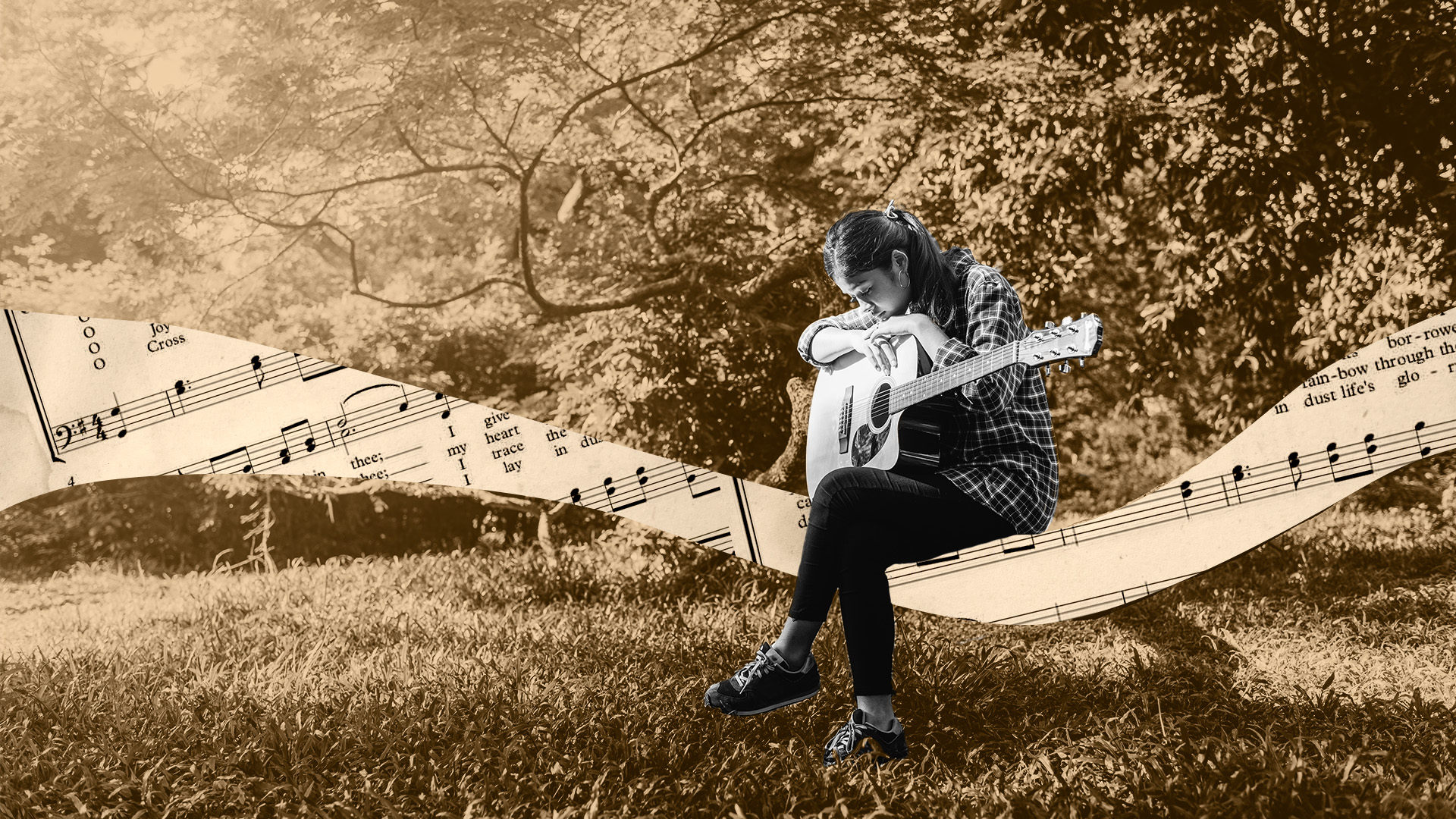I remember the trumpets, June Carter’s background vocals, and the expressive warble in Johnny Cash’s ocean-deep voice: “I fell into a burning ring of fire …” That song, “Ring of Fire,” was frequently played in our home back in the ’80s. I recognized it as a love song, but there was more than a hint of danger in that refrain.
I recognize that same danger when I open up my hymnal. George Matheson wrote the poetry of “O Love That Wilt Not Let Me Go” with keen awareness that his joy was wrestling with sorrow:
O Joy that seekest me through pain,
I cannot close my heart to thee.
I trace the rainbow through the rain,
and feel the promise is not vain,
that morn shall tearless be.
We are wired for love songs. But sooner or later in life, we’ll find we need songs of lament at least as much. The more we hope for things to be as they should be, the more we are confronted by our disappointments.
In moments when it would be easy to throw in the towel, to assume that the end of the story will be tragic because of what we’ve seen, lament helps us push back against hopelessness. For victims of the war in Ukraine, for those awaiting a transplant or a treatment or an adoption, or for those who just need to hear some good news, lament is a practice of hope in the waiting. It joins us to a great cloud of witnesses—from persecuted believers to sibling-betrayed Joseph—who have called on the name of the Lord and found him trustworthy in the valley of the shadow.
A number of articles and books have been written in recent years rediscovering the value of lament. Still, we don’t always understand it well. Lament is not a country song or a sentimental mood. And as Johnny Cash’s songs taught me, lament is not always a slow song. Lament is, in its simplest form, pouring out our hearts to God (Ps. 62:8). In doing so, we sensitize and strengthen our hearts.
It is not intuitive to lean into pain. But by acknowledging the brokenness around us and with us, we become more like our heavenly Father. As we ask God to mend, heal, and restore, we watch him work and learn to love what he loves and to see what he sees.
In lament, we learn that it is okay to lay out our questions before our compassionate Father, who holds all things. We learn to look also to Jesus, our brother, the Man of Sorrows, who weeps with us (Isa. 53:4). We discover that the Holy Spirit comforts us and gives us godly wisdom in real time.
Lament songs are often missing in our churches, at a time when we desperately need to relearn how to deal with sorrow. Our culture craves vulnerability, but it’s drawn to songs like Billie Eilish’s ballads, which depict a sadness that seems to want to stay inside itself. In worldly sorrow, there is no one to help. If pain is all there is, then we might as well revel in it.
But the gospel offers us something better. Jesus has carried our sorrows, he has taken them upon himself and gives us healing in exchange. Lament is not some new work for us to do. It is his work. Jesus resurrects us out of the prison of self-pity and into the freedom of his generative love. His love abounds to us and through us.
Lament draws us closer to him (Ps. 34:18) and draws us closer to one another. Through lament, God’s Spirit makes us more compassionate, more childlike, and more teachable.
As we make space and time to pray and sing songs of lament, it can diffuse the buildup of hurt and anger that we might be needlessly carrying (or throwing back toward one another). In God’s presence, we can become more clear on who we are (Rom. 8:17) and what it is we want (Mark 10:51–52).
Heartbreak may sell country music, but Biblical lament is more than self-expression. God is close to the brokenhearted, and he has nothing to sell. Jesus Christ has accounted for every loss, even those we have yet to experience. And he walks with us in the valley of the shadow. Although we lament, we see now the darkness is passing and the true light is already breaking in (1 John 2:8).
Sandra McCracken is a singer-songwriter in Nashville and the author of Send Out Your Light: The Illuminating Power of Scripture and Song.













